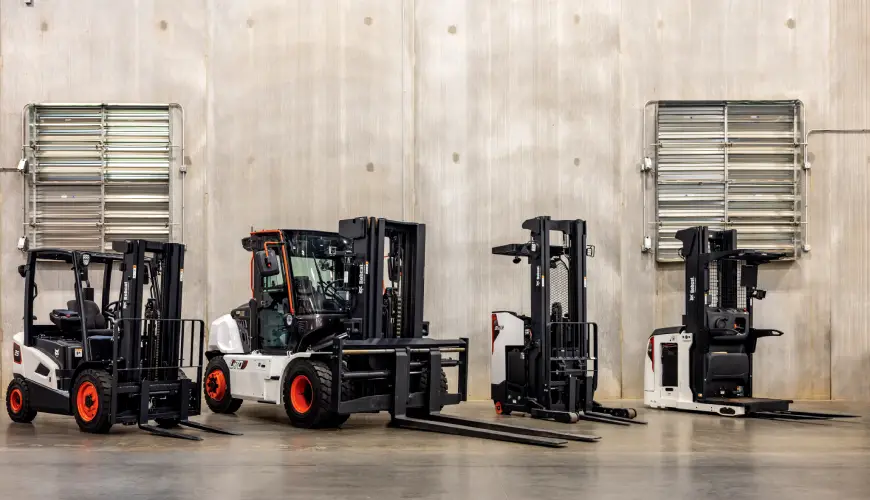
Forklift Classifications According to OSHA
As with most things related to industrial safety, the federal Occupational Safety and Health Administration (OSHA) has established a general categorization system for powered industrial trucks that the wider industry uses as a framework for equipment designations, training, and code enforcement.
This classification system provides a great method of cross-checking equipment against intended applications, as each fork truck class is best suited for a specific use. In addition, fork truck classes help to quickly align operator training requirements with the nuances and hazards of specific applications. All in all, OSHA fork truck classes ensure that a piece of equipment and its operator are fully prepared for the work at hand.
OSHA groups forklift-type equipment into Classes, numbered I (one) through VII (seven), as follows:
- Class I – Electric motor rider trucks
- Class II – Electric motor narrow aisle trucks
- Class III – Electric motor hand trucks or hand/rider trucks
- Class IV – Internal combustion engine trucks (solid/cushion tires)
- Class V – Internal combustion engine trucks (pneumatic tires)
- Class VI – Electric and Internal Combustion Engine Tractors
- Class VII – Rough Terrain Forklift Trucks
For more information on OSHA’s forklift classes and designations, readers are encouraged to check out OSHA’s Powered Fork Truck E-Tool, as well as OSHA’s written Powered Industrial Trucks standards section 1910.178.
Comparing Forklift Classes and their Applications
From the above list, Classes I through V are found in material handling environments, whereas Classes VI and VII are most often found in construction and extreme terrain applications. As our readers are primarily focused on material handling warehouse and distribution functions, we’ll limit our detailed comparison of forklift categories to only Classes I through V.
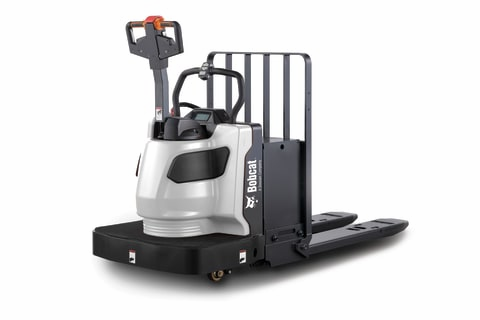
Class I lifts are electric-powered counterbalance forklifts with a seated operator. These lifts are versatile and commonly used in warehouses, manufacturing facilities, and retail environments.
Common Applications:
- Material Handling Warehouses
- General Manufacturing
- Heavy Commercial & Retail
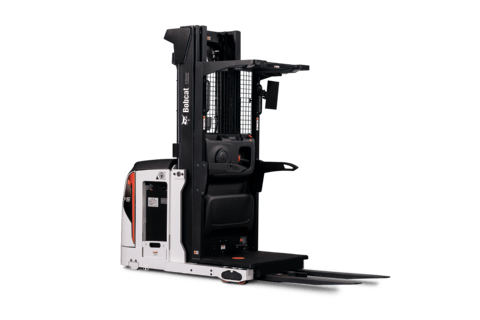
Class II lifts serve indoor warehouse environments that require a smaller lift width to fit down narrow, high-density rows of product racking. These lifts have unique safety concerns given their small size, overhung load orientation, and options for raising a stand-up operator with the forks.
Common Applications:
- High-Volume, High-Density Storage
- Distribution Centers
- Direct Order Picking from Storage
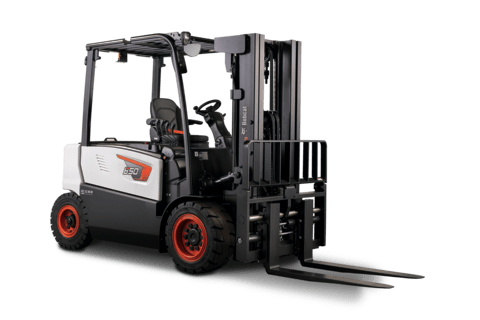
These fork trucks are either manual or electric-powered vehicles that move products around at ground level. Class III trucks are not intended for use with high-pile storage, as most do not have raisable forks and the variants that do only raise to one or two pallet stack heights.
Common Applications:
- Loading Dock Staging
- Smaller Warehouses
- Grocery & Medium-Scale Retail
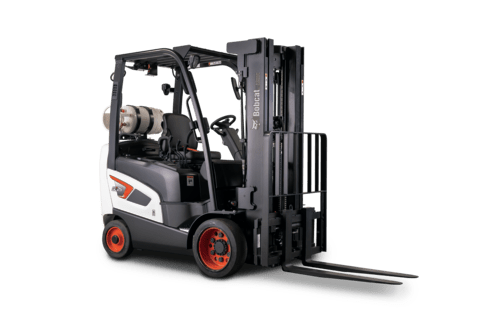
Class IV lifts are powered by internal combustion engines, providing more power than their above electric counterparts but at the expense of producing volatile emissions. For this reason, Class IV lifts are best utilized outdoors, or in warehouse spaces with ventilation systems designed to exhaust emissions to keep employees safe. Class IV lifts’ solid or cushion tires are ideal for smooth, flat surfaces.
Common Applications:
- Outdoor Warehouse Areas
- Facility & Grounds Management
- Outdoor Shipping & Receiving
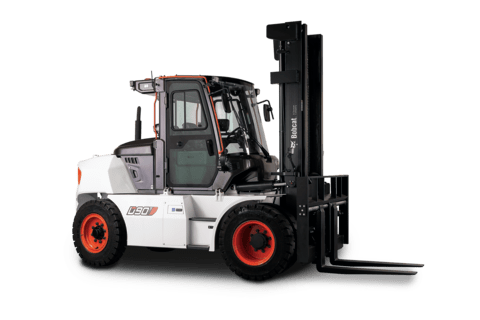
These heavy-duty Class V lifts are powered by an internal combustion engine and like Class IV lifts, are best used outdoors or in highly ventilated indoor spaces. Class V lifts are differentiated further by their pneumatic tires, which allows them to be used on more aggressive terrain (such as gravel-covered material yards).
Common Applications:
- Oversized Load Handling
- Lumber, Pipe, and Building Material Yards
- Heavy Manufacturing
Key Elements of Fork Truck Classifications
Now that readers have examples of each material handling fork truck classification in mind, let’s expand on how and why these classes differ.
- Safety – at the highest level, OSHA provides separate fork truck classifications to ensure that employers and operators are properly trained on the correct equipment for the job. Different fork truck classifications present different risks of accidents and injuries, and are not interchangeable from a safety perspective.
- Functional Risk – fork trucks of the same classification tend to operate, handle, and respond in a similar fashion, allowing operators to quickly jump between lifts within that classification. However, fork trucks of different classifications present different operational conditions and risks that warrant separate operator training.
- Load Stability – all fork trucks are designed to be stable in a specific, tightly-defined range of applications, outside of which there is no guarantee of stability or safety. OSHA’s fork truck classes give us additional ways to consider load stability across applications, such as comparing Class IV’s solid tires against Class V’s pneumatic tires, and Class I’s wide footprint against Class II’s narrow footprint.
- Regulatory Compliance – OSHA’s fork truck classes provide a shortcut for regulators, equipment manufacturers, training agencies, insurers, and employers to all speak the same language when referring to powered industrial trucks. Without these common definitions, there would be significant risk in how operators are trained, equipment is designated for an intended application, and safety standards are enforced over time.
We hope that this discussion on material handling techniques and technologies proves useful to your manufacturing, construction, and distribution interests. Atlantic Forklift Services is your premier material handling equipment resource, serving customers in the North and South Carolinas with professional equipment sales, rentals, service, repair, parts, training, and solution consulting.
As a Platinum award-winning dealership, Atlantic Forklift Services partners with world-class equipment manufacturers including Bobcat (formaly Doosan). To learn more, please contact us by phone at (866) 243-0991, by email at info@atlanticforkliftservices.com, or on the web at https://www.atlanticforkliftservices.com/.
